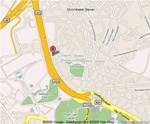
Whether you believe in The Secret or not, it got me thinking on what's the secret of a good interview. Did you ever get bad publicity out of an interview? Chances are you are the one to blame! Basically bad or unintented publicity from an interview you had can occur for two reasons:
1. The journalists doesn't like you or your company
Let's face it, this doesn't happen very much. Journalists are just doing their professional job. They are not paid to like or hate you, or bash on companies, but to write interesting stories for their readers.
2. You didn't prepare well
Every interview is just a conversation from one person to another. Both persons have several thoughts in their head and are discussing those thoughts during the interview. As a spokesperson for your company it is your job to make your thoughts clear to the journalist and get a clear view of what he or she is thinking. The journalist then interprets and rephrases your thoughts for his or her readers into an article. If the outcome is something different than you had in mind, something went wrong during the interview. In any case you did not succeed in communicating your thoughts in a way that is clear, ready to use for the journalist and genuine (honest and credible). Sometimes this happens when you are talking to for instance a journalist that has a strong technical background. The pitfall here is that you go deep into technical details, but leave it up to the journalists to translate this into a message that non-technical readers can understand.
Now there is a lot you as a spokesperson can do. I strongly believe in a good preparation of every interview or press contact that you may have. Here are some tips:
A. Clearly set objectives
Think about what is in it for you to do this interview. The journalists also has an objective. Is there a shared interest in your objective and that of the journalist?
B. Define the target audience
Realise that although you are talking to the journalist, you are delivering a message to his or her readers. So make sure you have enough background information on the publication and a readership profile. Does the readership match your objective?
C. Clearly define your objective in relation to the target audience
What would you like to achieve? Do you want to change a perception or just provide information? How does your message affect your target audience and why should they care? Define: I want my target audience to know / think / feel /act in the following way: ....... Once you have done this, work out your storyline by defining a key message, supported by relevant facts and figures.
Richard
31.8.07
The Secret of a good interview
Subscribe to:
Post Comments (Atom)

No comments:
Post a Comment